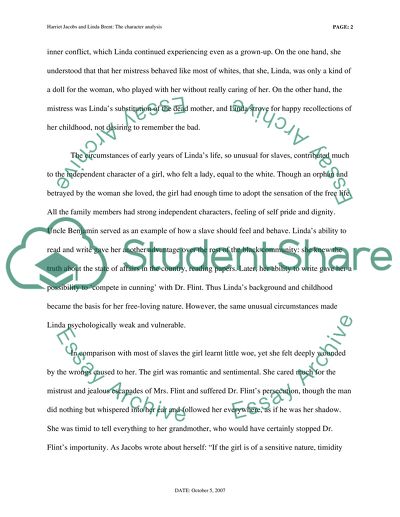Cite this document
(Harriet Jacobs and Linda Brent Book Report/Review, n.d.)
Harriet Jacobs and Linda Brent Book Report/Review. Retrieved from https://studentshare.org/literature/1542316-incidents-in-the-life-of-a-slave-girl
Harriet Jacobs and Linda Brent Book Report/Review. Retrieved from https://studentshare.org/literature/1542316-incidents-in-the-life-of-a-slave-girl
(Harriet Jacobs and Linda Brent Book Report/Review)
Harriet Jacobs and Linda Brent Book Report/Review. https://studentshare.org/literature/1542316-incidents-in-the-life-of-a-slave-girl.
Harriet Jacobs and Linda Brent Book Report/Review. https://studentshare.org/literature/1542316-incidents-in-the-life-of-a-slave-girl.
“Harriet Jacobs and Linda Brent Book Report/Review”. https://studentshare.org/literature/1542316-incidents-in-the-life-of-a-slave-girl.


